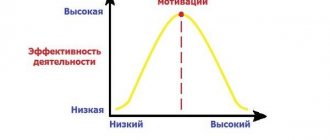| This article talks about some anti-science bullshit. If you are a physicist, chemist, biologist, or simply remember the school curriculum of the relevant course too well, it is better not to read it. Otherwise, you risk dying of laughter. We warned. |
| « | Anything that can go wrong will go wrong. | » |
| — Subzh | ||
Something like
Murphy's Law
- a fundamental principle according to which it is possible to explain why a particular activity ends in failure or even disaster. In Hochrussisch it is also sometimes called the "law of meanness" or "the law of the sandwich." The latter formulation is believed to have first appeared in Mark Gallay's book Tested in the Sky (1963). Gallay, in turn, attributes it to Jerome K. Jerome, but no proof has yet been found (although many moments from “Three in a Boat, Not Counting a Dog” and the whole story “On the dangers of other people’s advice” can be considered prototypes with a fair amount of imagination). Any of the laws described below can be called the “law of meanness.”
[edit] Synopsis
It all, in fact, began with the fact that in 1949, at the Pindos Air Force base Edwards, in California, a certain engineer began to think about why airplane accidents occur. Our patient's name was Edward Murphy (var. Murphy; English Murphy). So, he argued that if something can be done wrong, then these stupid technicians will do just that.
According to legend, the phrase “If there are two ways to do something, and one of them leads to disaster, then someone will choose that way” was first said when a running airplane engine began to rotate the propeller in the wrong direction. As it turned out later, the technicians somehow managed to install the parts backwards.
According to the version outlined in the "hacker's dictionary" aka "jargon file", Edward was a test engineer for the McDonnell-Douglas company and conducted experiments concerning the determination of accelerations acceptable for humans (Project MX981). The sensors, of which there were 16, could be attached to the subject’s body in two ways, only one of which was correct. So, the famous phrase was uttered after it was discovered that all sixteen sensors were installed incorrectly. View the original here.
The project manager from the Northrop Grumman Corporation, J. Nichols, called these constant problems “Murphy’s law.” At one of the press conferences, the Air Force colonel who conducted it stated that everything achieved in ensuring flight safety was the result of overcoming “Murphy’s law.” After which, in fact, this term was memetized.
However, the status of an epic victory was given to these laws by the YERZh and the writer Arthur Bloch, author of the book “Murphy’s Laws.” Actually, it is this form of presentation that is canonical due to the Orthodox combination of facts and lulz.
SITUATIONAL MERPHOLOGY
Cafeteria Law
What you noticed in the window will be bought by the person who came in front of you.
Ettore's Observation [from Murphy's Law I]
The queue next to you always moves faster.
O'Brien's version of Ettore's observation
As soon as you move to another line, your ex starts moving faster.
Kenton's Corollary
Your throwing back and forth inflates both queues.
Law of writing
As soon as you seal the letter, fresh thoughts come to mind.
Jones' Zoos and Museums Act
The most interesting exhibit does not have a nameplate.
Wood's drawing rules
- Never draw something that can be copied.
- Never copy something that can be traced.
- Never trace something that can be cut and pasted.
Basic principle of luggage
No matter which conveyor you stand at, your luggage will appear on another one.
[edit] Laws
| « | Oh, if I could get to the edge of that rainbow, Saying thank you to the good fairy fate, Then Murphy would hardly make me happy there, Saying that the whole treasure is on the other side. | » |
| — Bert Whitty | ||
Tomatoes in the topic of law
Murphy's canonical laws:
- Everything is not as easy as it seems.
- Everything takes longer than you might expect.
- If some trouble can happen, it will definitely happen. Moreover: if several troubles can happen, then they will all definitely happen and, moreover, in the most unfavorable sequence.
- If N causes of possible troubles are eliminated in advance, then there will always be a cause numbered N+1.
- Left to their own devices, events tend to go from bad to worse.
- As soon as you start doing some work, there is another that needs to be done even earlier.
- Every solution creates new problems.
Consequences:
- Of two mutually exclusive troubles, the one that causes the greatest damage will happen.
- The sandwich falls butter side down: butter is specifically heavier than porous bread, so it tends down. There is no need to even remember the meanness of nature.
- If a sandwich is buttered on both sides, it will not hang in the air, but will begin to roll around on the carpet, turning from side to side. The number of turns is directly proportional to the cost of the carpet.
- A freshly prepared hot cheese sandwich falls straight onto your bare leg, cheese side down.
- If an error can creep into a program, it will creep in.
- An error that has crept into the program will be aimed at causing maximum harm.
- If the program compiles the first time without debugging, then it is not working correctly, but you also cannot see why. There may be a compiler error.
- What you need is just not there, and when it is not needed, there is just plenty of it.
- Only after unscrewing the last of the 22 bolts securing the protective casing does the unscrewer realize that this is the WRONG casing.
- Only after tightening the last of the 22 bolts securing the protective casing does the driver realize that they forgot to put a gasket inside...
- If you drop a tool, it will roll into the most inaccessible corner of the workshop...
- ...but before that it will hit you painfully on the leg and break something else.
- Lost small and fragile items will be found after replacements have been purchased.
- In this case, they are found only by stepping on them with a characteristic crunch.
- You can't fall off the floor. (spoiler:
But you can take the experiment into low-Earth orbit, where the concept of “gender” loses its meaning
) - “The law of crevice”: a ring, falling on the floor, always rolls into the gap, no matter how small the area of the gap is compared to the area of the floor.
- Double-sided discs: no matter which side you place the disc in the drive, the information you need is on the back side.
- “USB superposition law”: no matter which side you insert the USB cable into the port, it will not insert. If you turn it over, it won’t fit either. And only after one more revolution the cable will be successfully inserted.
- No matter which side you start eating the pie from, the filling will definitely end up on the opposite side.
- No matter which side you open the package of pills from, it will open from the side where it is difficult to take them out because of the piece of paper with instructions for use.
- Of the identical keys in the bunch, the last one tested is the one needed.
- When inserting the blanket into the duvet cover, you should always turn the second unit four times - the cut will never show up from the first. And even if not four, but three, then always in the opposite direction.
Corollary 1. Everything is not as easy as it seems.
The tendency to underestimate complexity is always present; skill calibration comes with experience and many years of practice in the chosen profession. And even in this case, this is not a guarantee.
Like in my youth, a fantasy example: “Yes, I will solve this problem in 2 weeks.” Maximalism, combined with perfectionism and a lack of everyday experience, makes itself felt. And as a result, the fantasy hero spent 5-6 weeks and, at the same time, he worked hard and was on the verge.
[edit] Parkinson's Law
Very close in essence, but still stands out separately from Parkinson’s law: “Any work increases in volume to fill all the time allotted for it.” The point is that if Murphy discovered his law, probably in a fit of HATE, then Parkinson delivered it deliberately. For he was a statistician and discovered a pattern based on data about the naval bureaucracy.
Subsequently, Parkinson substantiated several more very good, suitable laws. Alsoo even trolled the merfifags a little, proving that Peter’s principle, the essence of which is: in a hierarchical system, any employee rises to the level of his own incompetence[1], is applicable only in the case of operating exclusively spherical horses in a vacuum.
Corollary 3. Of all the troubles, the one that will cause the most damage will happen.
It is worth mentioning Goldratt's law, the theory of constraints. The system is influenced most of all by only one element; it ultimately determines everything - the weakest link of the system, the bottleneck.
You can optimize your strategy for the little things, but if you are not ready to bear the main blow, then the design-system cannot be called stable. The main focus of attention is needed to patch the largest holes on the ship.
[edit] Le Chatelier's principle
It is better known among chemists due to its clarity. The scientifically correct formulation (the so-called moderation theorem) is not important; the following consequences are interesting:
- no matter how we try to change the state of the system under study, using external influences (changes in pressure, temperature, torture), the system tends to reduce the effect of the efforts made to a minimum.
- when external constraining factors are reduced, the equilibrium system itself
generates constraining factors (the same or others) - roughly speaking, it drowns in its own shit. It would seem that. However, this is the essence of balance. - if for some reason a certain negative element of the environment is absent or does not have a noticeable impact, it will be replaced by another, no less disgusting muck. Simply put: “not diarrhea, it’s scrofula.”
The chemical equilibrium in the reaction shifts in the opposite direction to the bullshit that caused it. In chemistry. Simply put: if you try too hard to do something good, it will turn out bad (in other ways). In common parlance: “the best is the enemy of the good.” However, if you try to do everything badly, you can suddenly get a positive effect, or “there would be no happiness, but misfortune helped.”
It is worth noting that the balance is still shifting
, that is, “the efforts are not in vain.” Another thing is that equilibrium systems “resist” changes, which is what chemists noticed.
The theoretical justification for Le Chatelier's law is given by the more general principle of mechanical equilibrium, first considered by Galileo and approved by the capable mathematician Lagrange. Its essence comes down to Newton's third law: any action causes a reaction. This formulation is the most familiar and understandable; ICHS easily extends to almost any physical and chemical phenomena (you can google about variational principles).
MEGA LAWS
Ilf's Revelation
Living on such a planet is just a waste of time!
Megalaws of Kozma Prutkov
All parts of the globe have their own, sometimes even very curious, other parts.
The most distant point on the globe is close to something, and the closest point is distant from something.
Bitov's Mega Law
While nothing happens, everything becomes different.
Bitov's comment
Real changes are not visible to the eye.
[edit] Gumperson's Law
| « | The probability of obtaining the desired result is inversely related to the strength of desire. | » |
| — Gumperson's Essence™ in One Sentence | ||
Here are typical examples of this law:
- A free parking space is always located on the opposite side of the street.
- a cigarette butt thrown out of a car window starts a forest fire, while it takes you at least an hour and a half to light a fire in the fireplace, and even with the help of gasoline, and the wood is dry, like the desert on a hot day.
- grass specially sown in fertilized soil does not want to grow, but several seeds of the same grass, accidentally falling into a crack in the asphalt, sprout magnificently.
- The cutest girl in the class will never give you this, since this is the most desired event. On the contrary, the most terrible fat woman will give it to you, and your secret love will meet with that asshole who fucks you.
- The more a couple wants to have a child, the more difficult it is for them. The more protection she takes, the greater the likelihood of pregnancy.
Gumperson's law cannot be confused with either Parkinson's law or Murphy's law.
Corollary 5: Left to their own devices, events tend to go from bad to worse.
Where there is no control = no development. It's more about that. If a certain element has a downward vector of development, strictly directed downwards, then if you let go of the situation, the situation will worsen.
But here we need to make a correction and add: this is wrong for situations in which you cannot change anything. In such situations, keeping your focus on the negative is empty.
The insidious magic of pragmatism
The “laws of meanness” attributed to the technical skeptic Murphy are not, as we see, unique discoveries. But we should give him his due - after all, a whole fascinating genre of literary collecting of everyday misunderstandings has appeared.
The most famous book in this regard was by Arthur Bloch. In it, the author, with deliberate seriousness, finds his system in the confusion of Murphy-style witticisms. At Bloch’s suggestion, these “wandering” conclusions are put into a more elegant verbal form.
The book does not do without vital satirical “stuffing”, which is so necessary in the conditions of eternally incompetent politicking. “Smile today – because tomorrow there may not be a reason!” - Bloch sarcastically calls.
The idea of such creativity has many followers. The set of Murphy's laws implies branches, gradations and all sorts of clarifications. Finagle's, Stockmeyer's, Chisholm's rules, consequences, principles, postulates... What kind of tricks can you find as part of a whole humorous science - Murphylogy!
Why has the phenomenon become so popular?
Despite the fact that this empirical law is rather pessimistic, it quickly spread to the masses and is still actively used in various variations. There are several reasons for this.
- Teaches you to be alert and helps prevent possible mistakes. If, when performing an important task, you know in advance where to lay the straw, this will help to avoid problems.
- Removes responsibility. When trouble does happen, it is always easier to believe in the fatalism of what is happening and transfer responsibility from your shoulders to something that is not in your power.
- Helps to approach problems with humor. If you make fun of the situation, it will not be so offensive because of failure.
Soda's Law is common in British culture. It arose long before the advent of Murphy's Law and states that the worst case scenario will happen exactly when you are least prepared for it. For example, you will have to wait the longest for the bus if you are in a hurry, and a large discount on the product you purchased will appear shortly after purchase.
Illusory correlation
Matthews also talked about something called "illusory correlation", which is why people believe in Murphy's Law. Illusory correlation is when a person incorrectly perceives a relationship between two variables when in fact no such relationship exists. These two variables can be a person, an action, an idea, or an event. For example, when we are in a traffic jam, it always seems to us that we are in the slowest lane. This mistaken assumption stems from our inherent behavior. We focus more on the cars passing by than on ourselves passing other cars.
David Hand, a statistician and professor of mathematics at Imperial College London, believed that the law of truly large numbers should sometimes make Murphy's law true. Additionally, selection bias ensures that these phenomena linger in our minds for a long time, making Murphy's Law seem universal when in fact it is not.











